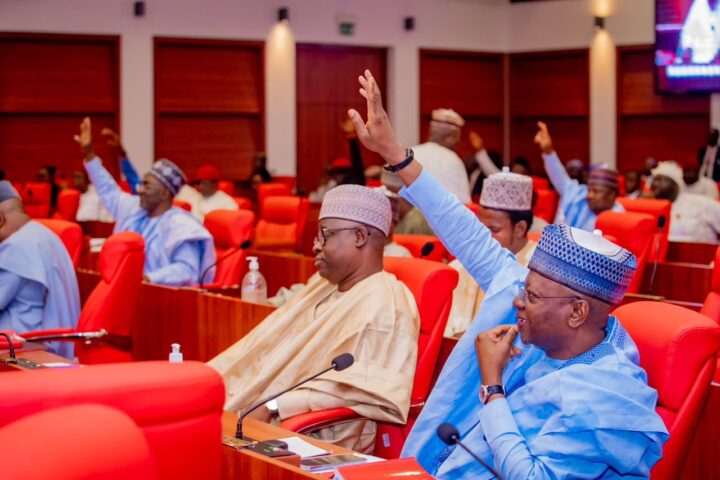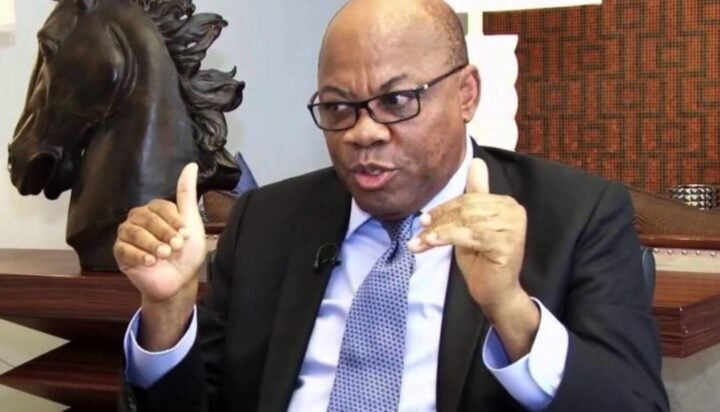Nigerian senate
A bill seeking to limit the tenure of the governor and deputy governors of the Central Bank of Nigeria (CBN) to a single non-renewal term of six years has passed a second reading at the senate.
The bill, sponsored by Adetokunbo Abiru, senator representing Lagos East and chairman of the senate committee on banking, scaled the second reading on Tuesday.
The legislation also proposed that where a vacancy is created as a result of the death or resignation of a CBN governor or deputy governor, the president of the federation can appoint an acting governor in the interim, pending the appointment of a substantive governor or deputy governor.
According to the bill, where a substantive appointment is made, such appointment will be for a fresh term rather than serving the tenure of the previous governor or deputy governor.
Advertisement
Abiru, leading the debate on the bill, argued that practical evidence has shown that a single non-renewal term for governors and deputies of the CBN would help to reduce political influence on monetary policy decisions.
“Empirical evidence shows that a single term for the members of the Executive and Board members of central banks helps to reduce political influence on monetary policy decisions and the time inconsistency problem associated with non-independent central banks,” the senator said.
“This is the practice adopted by many independent Banks such as the US Federal Reserve and the European Central Bank where their chief executive officers serve only one non-renewable term.”
Advertisement
The chairman of the banking committee also said the bill seeks to empower career staffers of the CBN to be elevated to the position of deputy governors.
The senator noted that the bill would also empower the federal government to appoint at least one female among the external directors of the country’s monetary policy committee.
He proposed that five external directors of the CBN should hold office for a non-renewable term of five years.
Following his debate, Senate President, Godswill Akpabio, directed the bill to the banking committee for further legislation and revert to the senate within two weeks.
Advertisement
Add a comment






